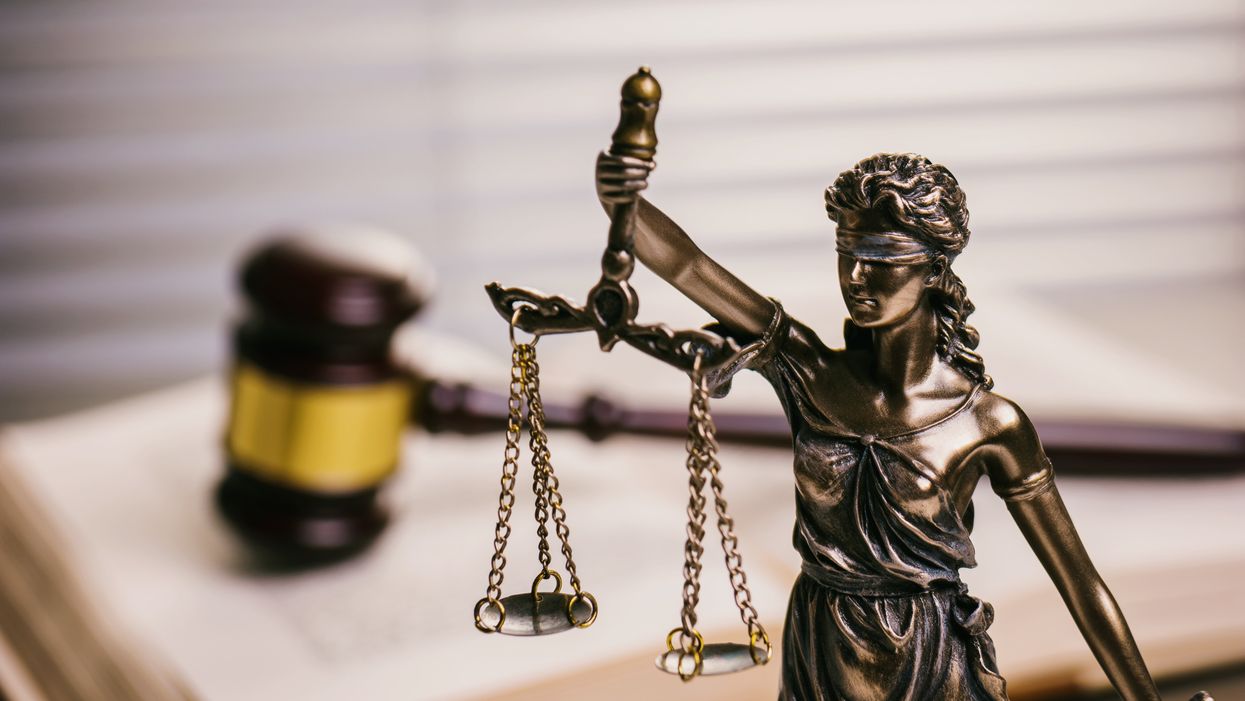The most important voting rights trial of the new decade started Monday.
The case is about whether several hundred thousand newly enfranchised Florida felons will be able to cast ballots this fall in the nation's biggest swing state. More broadly, it's about the balance of power between the people and the government.
As the trial opened, lawyers for former convicts argued the clear intent of the electorate, which voted overwhelmingly for a state constitutional amendment in 2018, was to permit their clients to register as soon as they were done with prison, probation and parole. Lawyers for the Republican state government, which decided in 2019 that repayment of fines and restitution would be required as well, said that was a valid interpretation of the voters' will.
Civil rights and voting rights groups argue the financial requirements amount to an unconstitutional poll tax, akin to what was used for decades to suppress the African-American vote. And in a preliminary ruling this winter, the 11th Circuit Court of Appeals declared the state "may not erect a wealth barrier" to registration and blocked the law from taking effect until after the trial — and the guaranteed appeal by whichever side loses in coming weeks.
The other central complaint of the plaintiffs is that Florida has no central system for determining what felons owe or certifying they have paid up, putting an unconstitutional and impossible burden on ex-offenders to prove they are eligible to vote. The judge in the case, Robert Hinkle of Tallahassee, demanded six months ago the state rectify that problem -- but Florida officials waited until two weeks ago to sketch a procedure for determining how much a felon owes.
Hinkle kept the trial timetable on track despite the coronavirus pandemic, switching it to webcams and telephone hookups, because of the tight timeline if the outcome is to be meaningful in 2020. The Florida congressional and legislative primaries are Aug. 18. Those who wish to vote in the presidential election have until Oct. 5 to register.
The state's 29 electoral votes are the biggest prize indisputably within reach of both President Trump and former Vice President Joe Biden. Trump won the state by 1.2 percentage points — 113,000 votes — last time, but recent polling has Biden slightly ahead.
The ballot measure, known as Amendment 4, restored voting rights to people with felony convictions (except murderers and sex offenders) once they complete "all terms of their sentence." The subsequent law, pushed through the Republican-majority Legislature by Gov. Ron DeSantis, defines "all terms" to mean all financial obligations connected with the felons' case. The state Supreme Court in January issued an advisory opinion that supported the governor's position.
At least 775,000 felons have such obligations, about 55 percent of the total in the state who are out of prison — the largest bloc of people in modern American history who could get their voting rights back at a single time.
Daniel Smith, a University of Florida political scientist who was the opening expert witness for the plaintiffs Monday, offered that estimate and said his research shows at least 45 percent of the felons with some outstanding obligations owe more than $1,000.
He has estimated that four in five felons who owe something have not paid yet. The report he prepared for the trial looked at records from all of Florida's 67 counties but did not make clear who might qualify as too poor to pay — a key statistic because the judge has signaled the law might be permissible if there's an exemption for the indigent.
Smith has said it is impossible to quantify how many might not be able to vote under the new law because of sloppy and inconsistent record record-keeping.
Before Amendment 4, the state since Reconstruction had barred people with felony convictions from voting for life — unless they could secure permission from a clemency board made up of partisan elected officials. As the referendum campaign was getting started in 2018, a federal judge declared that system unconstitutional and said it disproportionately punished African-Americans.
Thirty other states have laws on the books similar to the one being challenged. Attorney generals for 10 of them have filed court briefs in support of Florida's case. "If states are limited in their ability to pursue re-enfranchisement alongside their other interests, some states may well throw in the towel and prohibit any felon from regaining the right to vote," they wrote.
The trial is being conducted by teleconference — with the judge, witnesses and attorneys on video because of travel and social distancing limitations. The public is permitted to listen in, unusual for a federal trial court proceeding and a reflection of the high degree of interest in the case.
"We're really grateful that the court has found a way to let this go forward in spite of the circumstances," Julie Ebenstein of the American Civil Liberties Union, which is representing some of the plaintiffs, said in her opening argument.




















